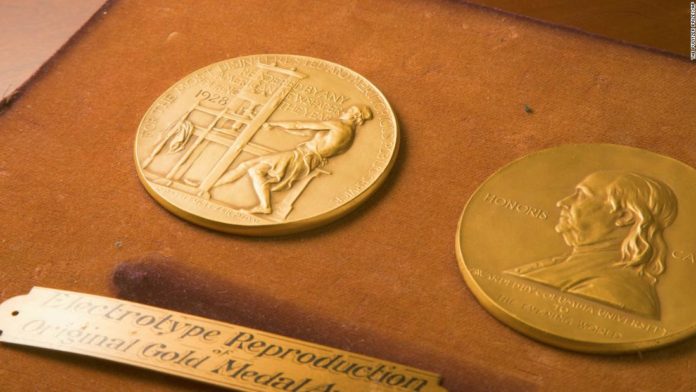That editorial board series, “The Big Lie,” was one of several winning submissions reflecting the aftermath of the 2020 election.
The judges also awarded the breaking news photography prize to Marcus Yam of the Los Angeles Times, who documented the fall of Kabul, Afghanistan, last summer.
The New York Times, which often wins multiple Pulitzers each year, won in the national reporting and international reporting categories, and Salamishah Tillet, contributing critic at large for The Times, won the criticism prize.
“This is a historic win for our newsroom and company,” Insider global editor in chief Nicholas Carlson said in a memo to staffers, noting that just a few other digital-only outlets (like BuzzFeed News, ProPublica, and the Huffington Post) have won a Pulitzer.
In many cases these publications beat out higher-profile finalists in their categories.
Natalie Wolchover, who was recognized by name along with Quanta, told CNN Business that “it’s a tremendous honor that physics journalists working at small publications don’t expect to receive.”
“I’m just thrilled that, in an era where there is much sorrowful news to explain and comprehend, that a story about the best aspects of humanity — our curiosity about the universe, our ingenuity, collaboration and courage — has been recognized,” she said.
Marjorie Miller, the new administrator of the Pulitzer Prizes, said on a Monday afternoon livestream presentation that “I’m honored to be the new steward of the Pulitzer Prizes, particularly in this time when truth and facts and books are under increasing assault.”
“Despite these challenges, or perhaps because of them, we received thousands of entries this year,” Miller said.
At the end of the presentation, she announced a special citation to the journalists of Ukraine “for their courage, endurance and commitment to truthful reporting during Vladimir Putin’s ruthless invasion of their country and his propaganda war in Russia.”
Source : CNN













